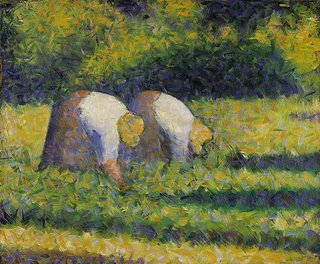
A bluesy wind is blowing through my life tonight. I felt it coming off the smooth waters of the huge canal I live on when I let the cat out for her evening patrol. There was exactly twelve blissful seconds of absolute pure night sounds - wind soughing through huge oaks around the house and just the crickets - before the incessant thrum of traffic pounding up and down I-4 up river and the sounds of arguments from the trailer park across the defensive spanse of water came back as the drone of background white noise particular to my house.
It started me thinking about the days and nights of absolute pure night sounds that I lived with at the ranch in Indianola Valley, Utah. The closest neighbor was a mile and a half down the grade that snaked through the valley. You had to drive 4.58 miles to see black top and 13.7 miles to see a town. The closest one was Fairview. This is where we went for groceries, to mail a package, get molasses coated oats when we ran low.
Willie Nelson owned a ranch on US highway 6. The highway ran to Fairview from what used to be the town of Thistle, which is now underwater from a huge land slide courtesy of the mountain the Denver and Rio Grande railway tunnel went through. We went to watch local kids practice their ranching skills via the venerable art of goat roping at Willie's. Yes. There is such a thing as a goat roping. The goats were good sports about it with most of the hoary veterans simply running across the indoor arena and laying down for the efforts of a lip-biting 8 to 10 year old dressed in miniature Midnight Cowboy garb.
Legs splayed out to the side well above the normal level for stirrups, rope lasso twirling furiously, if not quite in a perfect oval, the youngsters would pelt across the arena after said goat, slide their pony up to the supine form in a mixture of hay chaff and dust, and fling a tangle of rope and knots in the general direction of the animal. Jumping off the pony, the young cowboy would throw themselves on the unprotesting goat, whip a few loops around the horns and hold up a hand, fingers clenched in a fist - cowboy catcher to pitcher parlance for a done deal - to the applause of the crowd hanging on the fences.
I learned the nuances of the Cowgirl Barrel Wave here - a short, choppy slashing of the air with an open free hand as she came pell-mell out of the shute to weave the karick knot in the ground around barrels spaced just so to the rythym of the horse's hooves pounding the ground. The Cowgirl Barrel Wave is very different than the Cowgirl Parade Wave.
Many of the competitors in the local rodeos were expected to try their hand at competition for local beauty queens and rode the circuit of parades for whatever needed celebrating: Fourth of July, Labor Day, Harvest, Hog Days. There is a corresponding beauty title and pageant to go with each celebration, of course and you have to know the Cowgirl Parade Wave if you want to be taken as a serious competitor. This would be the obligatory signal from atop a crepe paper decorated float if you won a spot in the court.
The Cowgirl Parade (and Beauty Queen) wave is a cupped hand affair that nods back and forth from a stiff elbow held aloft like one of those bobble heads on the dash board of pick up trucks. With it should come a smile, genuine if you espy someone you know out in the crowd standing two deep on the side of the road, pasted on but gracious if a rival's cousins or friends were shouting uglies at you in good natured side taking.
Those were some of the social noises to be had in town. The noises I ate, slept and worked with daily at home involved the whinering and chuffing of horses as they restlessly paced a corral waiting for a daily coffee can sized ration of sweet feed on hay, gathering thunder coming over the mountains from Spanish Fork, snow falling off of overloaded cedar branches to pol-lop onto the pile of snow below, the low of cows, blatting of sheep, and at night, bracketed by the busy click of crickets, the mellifluous harmony of coyotes or wolves under a moon bright night sky . It ain't nothing like the canned sound of it coming out of your t.v. or the movie screen. Believe me. It gets in your bones and travels up to your inner ear through your spine and sets off harmonics in your soul when you're THERE.
Other sounds were the chunk of logs that were stacked up in the silo for winter (and summer) burning. You see. I lived without running water and electric for over five years out there. I'd like to say it was because I chose to but the fact was that the economics of running electrical wire out from the main road five miles was cost prohibitive. You learn to cope just like our ancestors did. I cooked on wood, both baking and top stove, learned to bank a fire under a pot of stew simmering in a big kettle on the back of a wood-burning stove to be ready at dinner time late in the day, and could turn out a fair stream-caught trout over an open camp fire with just a spit or a skillet.
Much of the year was spent gathering dead wood and snaking it off the side of the mountains tied with a rope to the pommel of your saddle. The horses loved this work and vied with one another to see who could step proud with the prettiest curl in their neck as they traveled sideways with just the right amount of tension to keep the logs from rolling ramshod down the grade. Down on the road, the logs were cut into handleable portions and loaded onto a stone boat - the flat, low sled with curved ironshod runners that we used to haul anything behind the horses.
Back at the house, the logs were cut into neat lengths to the accompanying chur and brupt-buzz of the chain saws and we began the arduous chore of splitting the wood with an awl and mallet. I got quite good at this, too. There's a particular 'schunk' when you've placed the wedge just right and applied just the right amount of swing with the sledge hammer. Wood was stacked with a satisfying thunk in sorted piles in which it would be used: in a box with small chips and twigs to start one, resinous kindling sticks once you got a little spark and smoke, next size up sticks for building a hot fire, split wood for a sustained burn and big round logs for a slow burn. That took care of fire.
For water,we went up to the big corral and waited patiently for the two 100 gallon tanks on the back of the old 1966 Dodge truck filled up, carted one load up to the corral to replenish the water tanks greeted by the hoof sounds and nickers of between 22 and 30 something head of mares in various stages of gestation for the Wyoming racing and show circuit, or with their colts and foals running hip to shoulder to us and went back for a second load. This one snaked it's way up the hill chugging in second gear past the log house I lived in and fed a cement tank for the gravity flow water system we used to water our own horses, bathe, flush the toilets, and wash our asses and our dishes. We made this trek every three days, rain or shine. I used the time listening to the crickle and pollup of water splashing and gurgling into and out of the metal tanks to read, work on some needle project that was current or to write.
I worked in Pleasant Grove just north of American Fork five days a week keeping the books for a big truck parts store and driveline service. Those sounds were clunking, screeding, the huffing of big diesel tractors as they pulled into the lot next door at the trucking company with their 40 foot trailer loads of potatoes for Thunder Bay, Canada and paper or cardboard bound for Corvalis and Redding, California. My husband drove a truck for them.
I sometimes went along on runs learning how to drive a five and a four, brownie and a main - the two gearshifts used to coerce a fleshy old Kenworth conventional tractor pulling a loaded trailer down the road. You have to learn to listen for the gears in the dog box to chortle at about the same speed to slip the gears into place with the spining flywheel of the manual transmission, around 18 rpms. You also listen for the baugh-uck-uck-uck-ah of the jake brake slowing down the engine until the last 'uck' told you to shift to a lower gear. I got okay at backing in to a loading dock and pulled the toggle to the accompanying shush of the airbrake.
There were also the dropped tool sounds followed by mechanic's colorful curses, the ringing of phones and the bell on the shop door. Those were the job sounds, half my life. Getting from half one to half two involved an hours drive to and from each day. I used that time to meditate, think, sing, plan, listen to the whir of the car's engine and look out for deer that inevitably need to gallop across the road on a mission, no matter who's coming.
I liked my home half noises better than my work half life noises. I love hearing the saddle leather creeched as it shifted and the way horse's hooves chumped on the rock and dirt of the paths we rode over the mountains on our way past Horse Dick Canyon to get breakfast next morning just under the Uinta mountain range at a little restaurant there. It was our destination and soul reason for the all day ride. A bedroll, skillet, coffee pot containing coffee, some salt and pepper and a dab of lard to cook whatever we had for dinner in camp that night were unloaded while a fire was being built next to a little creek. The horses were always nosey. We would wake up with them standing over us in our blankets, velvety noses with their noisy breathing and teeth grinding in our face. This was to remind us to bring out their sweet feed while we made coffee with the water from the creek.
There were the sharp claps of concussion from the bullets I made when we went target practicing our quick draw and when I was forced to put down someone's small dog who had argued with a cougar and was beyond the ministrations of any vet. I hated those noises from the little dogs and the gun that ended it then. I was the understood sheriff of Hideaway Valley - the name of the settlement in the valley behind Indianola. This was one of the chores I had besides keeping eyes out for stupid hunters who shot at horses during season unless we painted day-glo X's or wrote 'HORSE' on their sides.
We had this huge line-back dun with size 2 shoes and feathered feet named Loco Poco. He was pretty close to being a Percheron in size. He was a dough-ball, scared of almost anything and fearsome as leader of our small stable. When it would rain or hail, he'd heard the rest of the horses up under the roof next to the barn and huddle against them mostly exposed and taking the brunt of the storm on his flanks as the hail rattled against the steel roof. But a garbage bag on the side of the road would set him off in paroxisms of a horse's rendition of the high step dance as if it had been a rattler. He finally conquered his fear of plastic garbage bags and delighted in dumpster diving into the recyle trash barrel next to the barn to haul them out. He would hold them in his mouth, shake them and then run from the noise, repeat this a few times, drop the bag and stomp it furiously. He was boss!
Every morning for quite awhile, we heard this loud scra-da-dap, scra-da-da-dap, scra-da-dap that would wake us up. If you went outside, all you could see was a line of horses standing at the fence looking at you. Couldn't figure out what it was so we'd just get up earlier than the alarm, go out, feed the horses and get ready for the rest of our chores. One morning, I happen to get up a bit earlier and was in the kitchen making sheepherders coffee (handful of coffee grounds in a pot of boiling water, grounds settled with cold water or eggshells), when the scra-da-dap starts up. I look out at the window and here's Poco dragging his hoof across the ribs of a piece of corrugated tin used to cover old fence posts. The other horses look expectantly from Poco's music to the house. Sure enough, when I walk out, there they are standing innocently at the fence nickering for their morning feed, end result attained.
The horses loved swimming. On the very hottest days when there wasn't a breath of air blowing, we would ride the horses up to the big corral and unsadle them. Bareback, we'd ride into the big pond to the horse's delight. We played a form of splashy water polo with a beachball and the horses loved it! Lightfoots had a mustang that one of their daughter's rode who's spiked mane reminded me of Cindy Lauper. The little mustang loved snorkeling under water and then spraying the results on whoever was closest. I ended up with gallons of water and horse snot on my leg from her. No one got out of the water until we were cold and teeth chattered. Then we would loll around the bank drying off before saddling up and riding back home. Pond sounds were: Nicker, whinny, splash-sploosh, schuck-cha, snortle, giggle, laugh, plop.
Horses like snow, too. Christmas time, we would hook up the stone boat to a pair of horses in their winter blankets, bundle ourselves up and make the rounds of the valley carrolling. Horses hooves in snow sound like a muffle plup-clup and the iron skids on the ice sounds almost like metal being rubbed together.
We had chickens. They're obligatory on any ranch or farm and their cluck and pick-pick-pick words blend in with ranch music. One day, we're standing out by the corral where our horses stayed when we hear this garble-garble-scree coming from deep in the pines above the house. It gets closer and closer, then this guinea hen barrels out of the woods in a flurry of feathers and dust and charges down on us. Now. A guinea is ugly. It looks like the after pictures of a turkey someone has taken a hammer and tongs to. He stops short of us, quarrels at us a bit and then and begins herding those chickens together. He fussed over them, watched after the chicks and went after a rooster he thought was too big for his britches. At dusk, he would herd them into the trees so they were safe from coyotes and foxes. If he set up a racket, you came out of the house in your unders with a shotgun and flashlight. We never knew where he came from so far away from civilization. And no one was reporting him missing.
One night, there was the sound of about 100 drunk cowboys and their women in the sweetest, harmonic accapella rendition of Amazing Grace you've ever heard. We were up at Baker's ranch at a fireside - our rendition of Saturday Night Out socializing up in the valley. Each family would take turns hosting it every few weeks until we made the rounds of the valley. Then we started the rounds again. A fireside takes place around a big bonfire at your ranch. The host usually provides the main course - turkey, ham, deer, beef, fish - and everyone brings a dish and a bottle or six-pack of whatever. You play music, talk the latest valley news, dance, laugh and then leave.
I was the entertainment at Rick and Jane Baker's that night. I brought my 12-string and led the troops in various 50s and 60s rock and roll and country tunes throughout the evening. It was a beautiful full moon in the first fringe of Autumn. Baker had this huge native flagstone patio down some stairs from the house surrounding an equally impressive iron ringed fireplace. He'd built flat seats atop the rails surrounding the patio that kept drunks from stumbling off the edge and rolling the rest of the way down the hill through the sage scrub to the gravel road.
It was getting very late/early and I set my guitar back in the case. Someone called out for 'one more for the road' having wowed every one with his Phil to my Don Everly 'Dream'. So. I let everyone get settled and started out in silence, 'Ah-may-zing Grace! How sw-eet the sounds, that saved a wretch like me-eee..."
As if directed by a master conductor, every throat took up the next line and sang along. We rivaled the Mormon Tabernacle Choir that night. I don't know where those perfect voices came from because they were all around us, each one swearing later that there was an angel singing next to them. We sang the words, miraculously remembering all the lyrics.
Amazing Grace, how sweet the sound,
That saved a wretch like me....
I once was lost but now am found,
Was blind, but now, I see.
T'was Grace that taught...my heart to fear.
And Grace, my fears relieved.
How precious did that Grace appear...
the hour I first believed.
Through many dangers, toils and snares...
we have already come.
T'was Grace that brought us safe thus far...
and Grace will lead us home.
The Lord has promised good to me...
His word my hope secures.
He will my shield and portion be...
as long as life endures.
When we've been here ten thousand years...
bright shining as the sun.
We've no less days to sing God's praise...
then when we've first begun.
Amazing Grace, how sweet the sound,
That saved a wretch like me....
I once was lost but now am found,
Was blind, but now, I see.
Then. Silence. For long, long moments, no one spoke. No noise except the crackle of the fire. The chirp of crickets started up some minutes into the silence signalling that it was a good time to good night. Then everyone drifted off to jeeps, pickups, cars and some on horseback to head home. It was a long time until the next fireside. No one seemed willing to break that magic.
I eventually moved from the valley at the urging of an Indian in full battle regalia. I also left Utah to come home to Florida for healing. But that's another story for another time.
We are bombarded with noises, sounds every minute. As I write this, I hear the fan blowing on me, the tick of my Lara Croft Tombraider wall clock and the clicking of the keyboard. There is one persistant cricket who remains the key note to all my life noises chirping merrily outside my 3:00 a.m. bedroom window. In the Orient, crickets are a symbol of good luck. He has been with me from childhood, calling out to that special someone by rubbing his wings together just so. Makes me wonder if he ever finds her listening back at him.
I don't know if the grace I find when I listen to the cricket's song is luck so much as good fortune to have lived the life and seen the sights and heard the sounds that I have been blessed with. All of it has been wondrous - the good, bad and hurtful. And througout my life's orchestral arrangement, there has been a cricket up in the string section.













